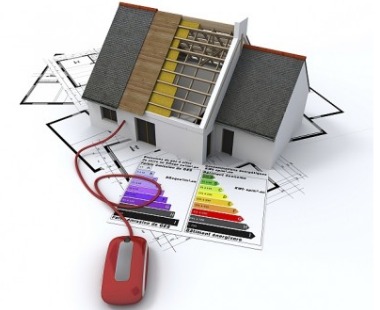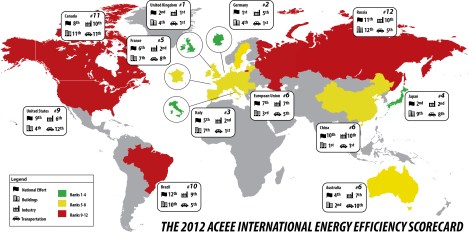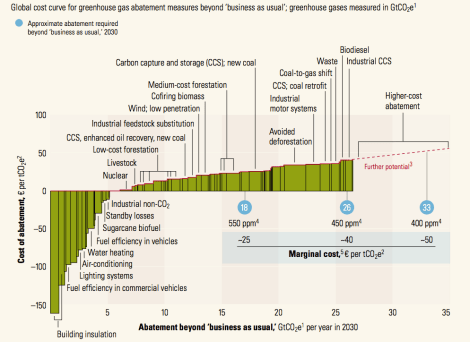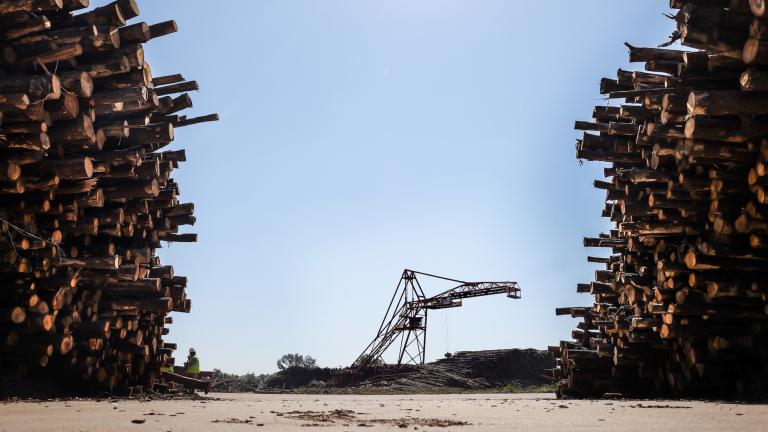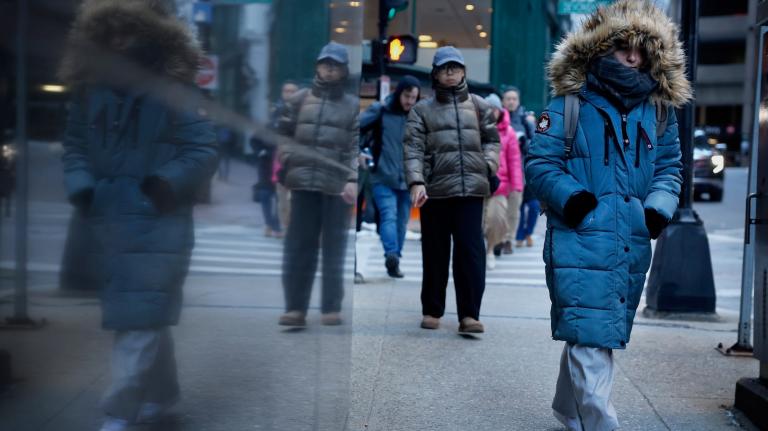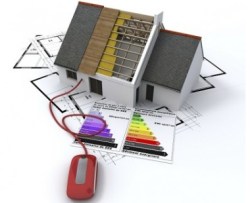
This image has something to do with efficiency. Insulation, maybe.
Yesterday, we wrote about the outrageously ridiculous amounts of energy Americans spend air conditioning things (cars, houses, themselves, cats).
Today, a report from the American Council for an Energy-Efficient Economy (ACEEE) tells us that America has one of the least energy-efficient major economies in the world.
From the ACEEE’s press release:
The United Kingdom comes in first in a new energy efficiency ranking of the world’s major economies, followed closely by Germany, Italy, and Japan, according to the first-ever International Energy Efficiency Scorecard published today by the nonprofit American Council for an Energy-Efficient Economy (ACEEE). The report finds that in the last decade the U.S. has made “limited or little progress toward greater efficiency at the national level,” putting it in 9th place out of 12 economies around the globe. …
On a scale of 100 possible points in 27 categories, the nations were ranked by ACEEE as follows: (1) the United Kingdom; (2) Germany; (3) Italy; (4) Japan; (5) France; (6) the European Union, Australia, and China (3-way tie); (9) the U.S.; (10) Brazil; (11) Canada; and (12) Russia.
Ha ha Canada.
For those who want to decrease energy use and carbon emissions, energy efficiency has long offered the most promise for doing so quickly and at low cost. (See: Roberts, Dave.) A 2007 report by McKinsey and Company [PDF] developed a chart (below) comparing the cost of economic shifts to the potential for greenhouse gas reduction. In the chart, strategies to the left are cheaper, while the width of the bar indicates the emissions reduction. Most of the cheapest strategies revolve around efficiency.
A second McKinsey report in 2009 suggested that improved efficiency could save $1.2 trillion by 2020.
Today’s report from the ACEEE provides a helpful list of recommendations that mirror the above curve, offering ways the United States can increase its energy efficiency. House Republicans are currently reading them out loud to each other and laughing, laughing, laughing.
